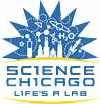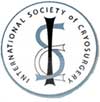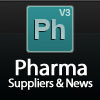Helpful Links
Jump to: CSA Websites | Databases | Education | Government | International Affiliates | National Laboratories | Publications | Societies | Useful WebsitesCSA Websites
-
CryoChronicle
CryoChronicle is a free monthly e-newsletter published by the Cryogenic Society of America (CSA). Focused on the latest news and information in cryogenics and superconductivity, CryoChronicle brings you up-to-date information on research projects, developments and events in the field, as well as news on products, companies, and the national labs. Subscribe at the website. -
Cryogenic Treatment Database
The Cryogenic Treatment Database is a leading resource for research and information in the field of cryogenic treatment — the use of extremely cold temperatures to improve the properties of materials. Updated quarterly, the database contains scientific and informational articles pertaining to the cryogenic treatment industry. -
Space Cryogenics Workshop
The Space Cryogenics Workshop brings together scientists and engineers from around the world who are actively involved in the field of cryogenics as it relates to space applications. The event is held every two years, preceding or following the Cryogenic Engineering Conference / International Cryogenic Materials Conference (CEC/ICMC).
Databases
-
Center for Interfacing Low Temperature Electronics and Coolers (CILTEC) Cryocooler Database
CILTEC is a part of the Cooling & Instrumentation research group of the Low Temperature Division of the University of Twente, The Netherlands. The CILTEC database was prepared in 2002 by Marcel ter Brake of the University of Twente and his colleagues and consists of data on about 250 different cryocoolers. Those wanting a copy of the spreadsheet can request one via e-mail from Marcel ter Brake by clicking the title link.
-
Extreme-Temperature Electronics
A web site for information and activities related to electronic materials, devices, circuits and systems at temperatures below -55°C/-65°C and above +125°C.
-
Fridoc Database
Fridoc is the most comprehensive refrigeration database in the world. Fridoc is available on line via the IIR’s Web site and has a search engine making it possible to perform searches in natural language.
-
NIST Cryogenic Materials Properties Database
This database, available through the National Institute of Standards and Technology (U.S.), has information on materials ranging from aluminum and balsa to stainless steel and Teflon. The database is a work in progress, with new materials and properties planned for addition as data become available. The temperatures the materials are subjected to range widely from cryogenic (as low as -452 °F) to room temperature.
Education
-
Absolute Zero and the Conquest of Cold
Absolute Zero, a two-part PBS television special originally broadcast in January 2008, demonstrated how civilization has been profoundly affected by the mastery of cold. Based largely on Tom Shachtman’s acclaimed book, Absolute Zero and the Conquest of Cold, the documentaries explored key concepts, significant individuals and events in the field of low-temperature physics and the enormous impact that the mastery of cold has had on society through such technologies as air conditioning, refrigeration and liquefied gases.
-

Science Chicago: Life's A Lab
From September 2008 to August 2009, Science Chicago brought together more than 140 of the Chicago area’s leading academic, scientific, corporate and non-profit institutions to host over 1,000 programs that provided hands-on learning; spur thoughtful debate; and build enthusiasm for the pursuit of cutting-edge science. CSA partnered with Corporate Sustaining Member Meyer Tool & Manufacturing to present a Science Saturdays presentation entitled “We Build Cool Stuff” on November 15, 2008 at Meyer’s corporate headquarters and manufacturing facility in Oak Lawn.
Government
-
Cryogenics Test Laboratory, NASA Kennedy Space Center
The Cryogenics Test Laboratory at NASA Kennedy Space Center, a CSA Corporate Sustaining Member, produces practical solutions to low-temperature problems while focusing on long-term technology targets for energy-efficient cryogenics on Earth and in space.
-
NASA Ames Research Center - Cryogenics Group
Ames plays a critical role in virtually all NASA aeronautical and space exploration endeavors, conducting the research and developing the technologies that enable NASA missions, fuel American markets for goods and services and enhance the quality of life on Earth.
-
National Institute of Standards and Technology (NIST) Cryogenics Technologies Group
The mission of Cryogenic Technology Group at NIST is to conduct research in cryogenics, working with industry and other government agencies in the development of new and/or improved processes and products involving cryogenic technologies.
International Affiliates
-
British Cryogenics Council
The British Cryogenics Council was founded on May 24, 1967, at The Royal Society, London. The BCC’s mission is the advancement of scientific education by promoting knowledge of and interest in cryogenics, thereby fostering the development and application of cryogenics for the public benefit. The Council sponsors the annual British Cryogenic Cluster Day and other events such as ICEC27-ICMC2018, and the Oxford Superconductivity Summer School. Publications include the quarterly Low Temperature News, and the monthly B Cryo newsletter. Membership includes more than 100 Corporate Members from UK, Europe and the USA, with a similar number of individual members. Individuals, institutions and companies with an interest in cryogenics may apply for membership in the British Cryogenics Council. BCC leaders include: Dr. Beth Evans, Chair, and Dr. Oleg Kirichek, Vice Chair.
-

Cryogenics and Superconductivity Society of Japan
Originally established as the Cryogenic Association of Japan in 1966, CSSJ’s mission is to provide quality programs, opportunities and information related to cryogenics and superconductivity technologies for communicating among members and non-members in response to community needs.
-
Deutscher Kälte- und Klimatechnischer Verein e.V. DKV (German Refrigeration and Air Conditioning Institute)
Deutscher Kälte- und Klimatechnischer Verein e.V. DKV is the only German technical and scientific association in the areas of cold, climate and warm pumps technology. It was founded in 1909 in Berlin.
-
International Institute of Refrigeration (IIR)
The IIR’s mission is to promote knowledge of refrigeration technology and all its applications in order to address today’s major issues, including food safety and protection of the environment (reduction of global warming, prevention of ozone depletion), and the development of the least developed countries (food, health).
-

International Society of Cryosurgery
The International Society of Cryosurgery (I.S.C.) promotes lasting medical education in the field of cryosurgery, from both an experimental and a clinical point of view. The overall aim of the I.S.C. is to continue developing and expanding the use of cryosurgery around the world. Membership is open to anyone who has a professional interest in research and education in the fields of cryosurgery, cryobiology, cryopreservation, and other disciplines related to the use of low temperatures in medicine.
-
Society for Cryobiology
This society was founded in 1964 in Maryland, USA, to bring together those from the biological, medical and physical sciences who have a common interest in the effect of low temperatures on biological systems. The purpose of the society is to promote scientific research in low temperature biology, to improve scientific understanding in this field, and to disseminate and apply this knowledge to the benefit of mankind. The website is www.societyfor- cryobiology.org
The Society for Cryobiology organizes an annual scientific meeting under the name CRYO 20XX corresponding to the current year. In the past they have also sponsored meetings of the Organ Preservation Alliance and the American College of Cryosurgery and co-sponsored a conference with CSA.
The society’s publication, Cryobiology: International Journal of Low Temperature Biology and Medicine, is published by Elsevier six times per year. A monthly e- newsletter is also available on their website.
The Society for Cryobiology comprises approximately 300 members from around the world. The majority of members are located in North America and Europe; however, they are a truly global organization with members on all six populated continents. Membership is open to: individuals engaging in or con- cerned with scientific research in low temper- ature biology who concur with and support the objectives and policies of the Society (“in- dividual members”); nonprofit organizations supportive of scientific research in low tem- perature biology that concur with and sup- port the objectives and policies of the Society (“institutional members”); commercial orga- nizations supportive of scientific research in low temperature biology that concur with and support the objectives and policies of the Society (“corporate members”); and trainees who are undergraduate students or graduate students or post-doctoral fellows working in the area of cryobiology (“student members”).
Officers are Nicole Evans, Executive Director; and Dayong Gao, President 2018-2019.
-
Society for Low Temperature Biology
The Society for Low Temperature Biology (SLTB) (United Kingdom) was founded in 1964 with the purpose of promoting research into the effects of low temperatures on all types of organisms and their constituent cells, tissues and organs.
National Laboratories
-
Argonne National Laboratory
Argonne National Laboratory, a CSA Corporate Sustaining Member, is one of the US Department of Energy’s oldest and largest national laboratories for science and engineering research and employs roughly 2,800 employees, including about 1,000 scientists and engineers, three-quarters of whom hold doctoral degrees. Argonne’s mission is to apply a unique mix of world-class science, engineering and user facilities to deliver innovative research and technologies. We create new knowledge that addresses the most important scientific and societal needs of our nation.
-
Cryogenics Test Laboratory, NASA Kennedy Space Center
The Cryogenics Test Laboratory at NASA Kennedy Space Center, a CSA Corporate Sustaining Member, produces practical solutions to low-temperature problems while focusing on long-term technology targets for energy-efficient cryogenics on Earth and in space.
-
Fermi National Accelerator Laboratory
Fermi National Accelerator Laboratory, a CSA Corporate Sustaining Member, advances the understanding of the fundamental nature of matter and energy by providing leadership and resources for qualified researchers to conduct basic research at the frontiers of high energy physics and related disciplines.
-
National High Magnetic Field Laboratory - Florida State University
The only facility of its kind in the United States, the National High Magnetic Field Laboratory, a CSA Corporate Sustaining Member, is the largest and highest-powered magnet laboratory in the world, headquartered in a sprawling 370,000-square-foot complex near Florida State University in Tallahassee.
-
National Superconducting Cyclotron Laboratory - Michigan State University
NSCL is a world-leading laboratory for rare isotope research and nuclear science education and a CSA Corporate Sustaining Member. With support from the US National Science Foundation, the laboratory operates as a national user facility that serves more than 700 researchers from 100 institutions in 35 countries.
-
Oak Ridge National Laboratory
ORNL, a CSA Corporate Sustaining Member, is a multiprogram science and technology laboratory managed for the US Department of Energy by UT-Battelle, LLC. Scientists and engineers at ORNL conduct basic and applied research and development to create scientific knowledge and technological solutions that strengthen the nation’s leadership in key areas of science; increase the availability of clean, abundant energy; restore and protect the environment; and contribute to national security.
-
SLAC National Accelerator Laboratory
SLAC National Accelerator Laboratory is home to a two-mile linear accelerator—the longest in the world. Originally a particle physics research center, SLAC is now a multipurpose laboratory for astrophysics, photon science, accelerator and particle physics research.
-
Thomas Jefferson National Accelerator Facility (Jefferson Lab)
The primary mission of Jefferson Lab, a CSA Corporate Sustaining Member, is to conduct basic research of the atom’s nucleus using the lab’s unique particle accelerator, known as the Continuous Electron Beam Accelerator Facility (CEBAF). Jefferson Lab also conducts a variety of research using its Free-Electron Laser, which is based on the same electron-accelerating technology used in CEBAF.
-
TRIUMF
TRIUMF, a CSA Corporate Sustaining Member, serves the Canadian particle and nuclear physics, molecular and materials science, and nuclear-medicine communities with world-leading facilities. TRIUMF also provides scientific and engineering leadership and support for the Canadian community to be valued partners at high-profile scientific experiments in other leading laboratories around the world.
Publications
-
Pharmaceutical International - Online Publication
Pharmaceutical International provides up to the second information on a number of key pharmaceutical and life science issues, focusing on the latest news, key suppliers, industry articles, exhibitions/events.
-
Physics Today Online
Physics Today, the flagship publication of the American Institute of Physics, is the most influential and closely followed physics magazine in the world. As part of the CSA/AIP affiliated society membership, individual CSA members can subscribe to AIP-owned journals at member rates.
-
Superconductor Week
Superconductor Week is the leading newsletter providing global coverage of the technology and commercialization of low- and high-temperature superconductors and cryogenics for both large-scale and small-scale applications.
Societies
-
American Institute of Physics (AIP)
With an extensive catalog of top-cited journals, the American Institute of Physics (AIP) is one of the world’s leading publishers in the physical sciences, publishing 13 journals; two magazines, including its flagship publication Physics Today; and the AIP Conference Proceedings series. As part of the CSA/AIP affiliated society membership, individual CSA members can subscribe to AIP-owned journals at member rates.
-
American Society of Mechanical Engineers
ASME is a 120,000-member professional organization focused on technical, educational and research issues of the engineering and technology community.
-
ASM International
The society for materials engineers and scientists, a worldwide network dedicated to advancing industry, technology and applications of metals and materials.
-
Compressed Gas Association, Inc.
The Compressed Gas Association is dedicated to the development and promotion of safety standards and safe practices in the industrial gas industry.
-
IEEE Council on Superconductivity
The IEEE Council on SuperConductivity, CSC promotes programs and activities that cover the science and technology of superconductors and their applications. Superconducting applications span the range from small scale analog and digital circuits and systems, to large scale applications of electrical power generation, storage, and transmission.
-

International Society for Biological and Environmental Repositories (ISBER)
ISBER is an international forum for the distribution of information and guidance on the safe and effective management of specimen collections; and technical, legal/ethical, and managerial issues relevant to repositories of biological and environmental specimens.
-
Superconducting Particle Accelerator Forum of the Americas (SPAFOA)
The Superconducting Particle Accelerator Forum of the Americas (SPAFOA) was recently launched as a 501 (c) 6 not-for-profit corporation. The SPAFOA is a continuation and expansion of the former Linear Collider Forum of America (LCFOA). The not-for-profit SPAFOA expands the scope of the former LCFOA to include other major particle accelerator projects in addition to the International Linear Collider. SPAFOA provides a vehicle to integrate the resources of the U.S. and Canadian industrial base into the research, development, manufacturing, construction and operation of major programs based on superconducting radio frequency (SCRF) accelerator technology.
Useful Websites
-
LabX
Find cryogenic equipment and other new and used laboratory equipment at LabX.












